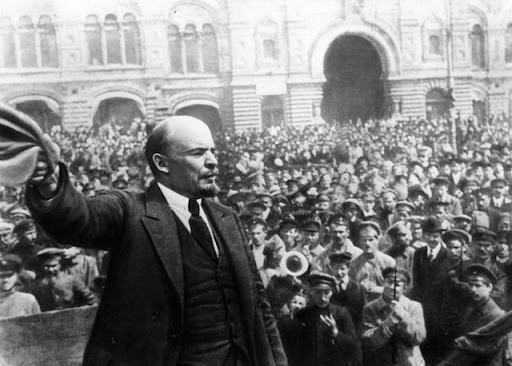October Revolution (1917)
Wed Nov 07, 1917

Image: Vladimir Lenin giving a speech to Vsevobuch servicemen on the first anniversary of the foundation of the Soviet armed forces, Red Square, Moscow, 25th May 1919. This photo, brought from Russia by Dr. W.A. Wovschin, shows a view of a mass meeting, when the Soviet leader made an appeal for the men to keep together for the glory and safety of Russia.
On this day in 1917, the October Revolution began in Russia when the Bolsheviks initiated an armed insurrection in Petrograd, seizing the Winter Palace and dissolving the Provisional Government in a coup with minimal violence. The name "October Revolution" comes from the fact that the revolution began on October 25th in the dating convention of the time.
Led by the Bolshevik Party, the revolution took place through an armed insurrection in Petrograd and was instrumental in the larger Russian Revolution of 1917 - 1923. By November 8th, the Winter Palace, the seat of the Provisional government located in Petrograd, then capital of Russia, had been captured.
Elections were held on November 12th. In contrast to their majority in the soviets (local council governments), the Bolsheviks only won 175 seats in the 715-seat legislative body, coming in second behind the Socialist Revolutionary Party, which won 370 seats.
On its first and only day in session, the Constituent Assembly came into conflict with the soviets, and it rejected soviet decrees on peace and land, resulting in the Constituent Assembly being dissolved by the Bolsheviks in January.
The political situation devolved into a civil war between the Bolsheviks, Whites (counter-revolutionaries), Makhnovists, independence movements, and other socialist factions.
The Bolsheviks eventually defeated all rival parties and formed the Union of Soviet Socialist Republics (USSR) in 1922. Their victory marked the beginning of Marxism-Leninism as a global force.